Russia’s government justifies its aggression on Ukraine by insisting that Ukrainians are a branch of the Russian nation. Two nineteenth-century historians, one from Paris, the other from Lviv, help us to see through the intellectual poverty of Kremlin’s nationalist fantasy about domination over Ukrainians and Belarusians.
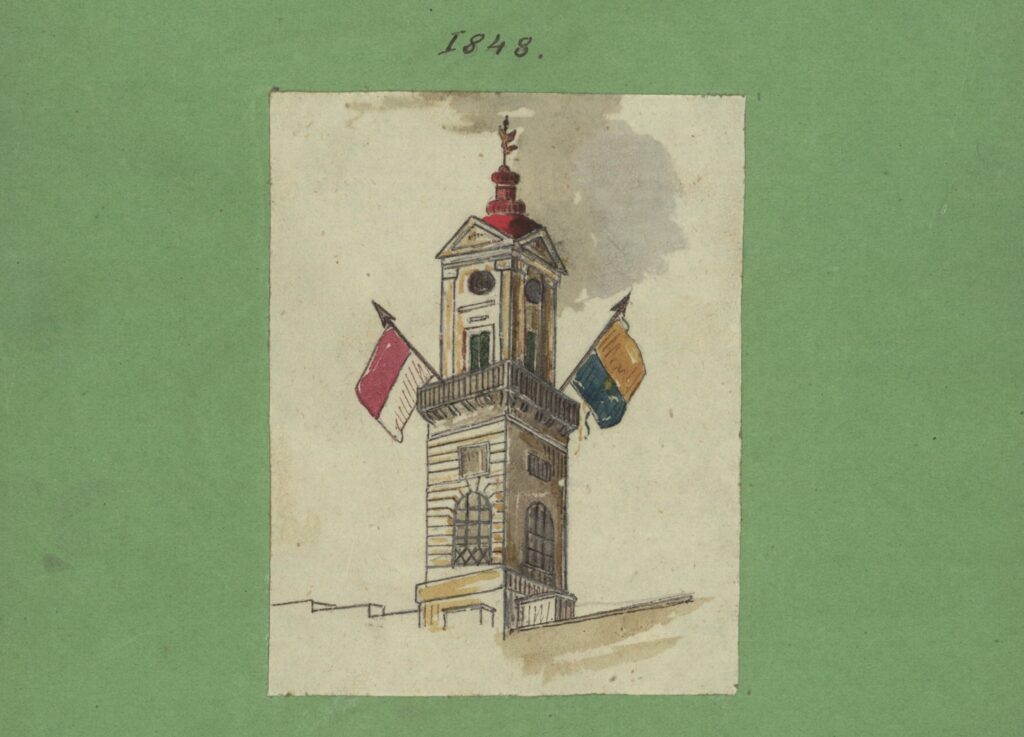
On 11 March 1882, exactly 140 years ago, Ernest Renan, a renowned French oriental scholar, delivered a lecture at the Sorbonne which was to go down in history under the title Qu’est-ce qu’une nation? or What is a nation? in English. 1 This extraordinary text has aged surprisingly well and remains indispensable reading for anybody involved in the study of nationalisms and nation building. Renan’s most famous line from this talk has been repeated so many times that it is now a dreary platitude: a nation’s existence is a daily referendum (un plébiscite de tous les jours). Today, the Ukrainian society gives us an exceptionally dramatic example of how such a referendum works. Even though many Ukrainians are native speakers of Russian and often have relatives in Russia, they nevertheless fight fiercely to fend off the aggression of the Russian state. They choose to be Ukrainians and pay the highest price for this. Unfortunately, the Kremlin decision makers do not seem to be able to understand this simple truth. Today’s champions of Russian domination over Ukraine profess an essentialistic understanding of nationality. They construe nations as primordial and organic communities whose essence is enchanted in their language (unsurprisingly, they dismiss the Ukrainian language as a Souhern Russian dialect). From this perspective, Renan’s plébiscite de tous les jours is an absurd idea: contingent historical developments and choices of individual human beings are completely irrelevant, as the only thing that matters is the mystical community cemented by the unique national language and endowed with a lofty historical mission.
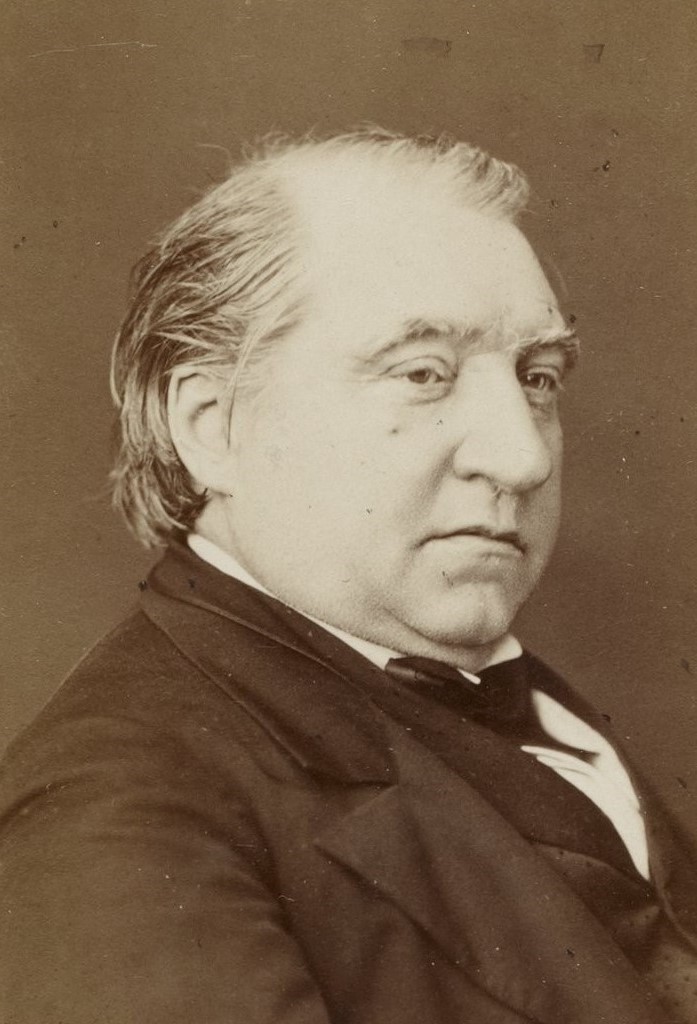
On 5 March 1883, almost exactly a year after Renan’s lecture in Paris, another intellectual gave a talk in Lviv, the capital of the Austrian Crownland of Galicia and Lodomeria (and today a regional centre in Western Ukraine). The Lviv speaker addressed the same problem in his presentation: What is a nation? Which groups can legitimately claim to be nations? What criteria need to be fulfilled? Which national characteristics are merely accidental and can be dispensed with?
The speaker in question was Walerian Kalinka, one of the most independent voices present in the Polish-language public sphere in the nineteenth century. An ultramontane conservative, Kalinka was perhaps the first Polish intellectual to systematically assault what he considered to be the excesses of the Polish-Lithuanian nobiliary republicanism of the period before 1795 and the armed struggle for independence after the collapse of the early modern Commonwealth. As such, he is credited as one of the founders of the so-called Cracow historical school.
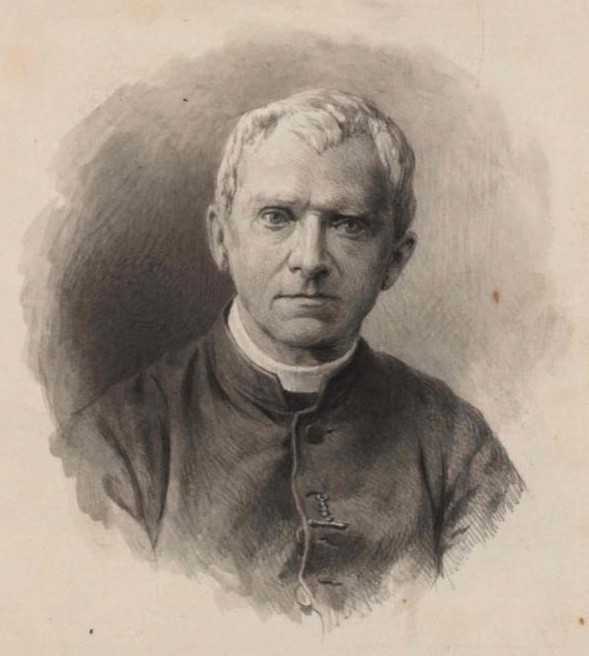
This is no place to recount Kalinka’s colourful life and enumerate his diverse activities. What matters here is that at the beginning of the 1880s he was the most prominent member of the Resurrectionist Congregation resident in Galicia; in this capacity he was responsible for the establishment and management of the new boarding house (internat in Polish) for Ruthenian Greek Catholic schoolboys that opened in Lviv in September 1881. It was located in the former monastery of Franciscan Sisters on the Pekars’ka Street in the neighbourhood of Lychakiv (the building still exists and houses a Pentecostal church). The goal of this institution, as formulated by Pope Leo XIII and supported by Emperor Francis Joseph, was to provide its pupils with a quality education that would solidify their Catholic faith without undermining their Ruthenian (Galician Ukrainian) nationality. Lviv Resurrectionists housed, fed, and supervised their boarders, but it was not their intention to school them in isolation from the outside world. All but the youngest pupils attended the Ruthenian-language Gymnasium run by the Austrian government.
The Resurrectionists were a predominantly Latin Catholic congregation established in the late 1830s by Polish political exiles in Rome. Half a century later, Poles still formed the bulk of its membership, so it could seem quite unusual that they started an institution in Lviv to support the education of Greek Catholic youths qua Ruthenians and not for the purpose of imbuing them with the Polish national allegiance as gente Rutheni natione Poloni. 2 Many members of Galicia’s Polish elite denounced this initiative as squandering limited national resources for the sake of Poland’s avowed enemies. Kalinka’s speech of March 1883 offered a compte rendu of the boarding house’s short existence and attempted to answer such accusations, in order to soothe its Polish benefactors. This explains the resolutely Polish vantage point of Kalinka’s speech. His collective „we” usually referred to the Polish nation.
As is well known, Hans Kohn, one of the most influential twentieth-century theorists of nationalism, distinguished between civic and ethnic nationalisms. He claimed that the former emerged in Western European societies living in relatively uniform nation states, whereas the latter flourished in outdated polyethnic empires of Eastern Europe. 3 There are many problems with this dichotomy, but there is no need to explore them in detail here. Even if Kohn’s opposition is mostly wrong on the empirical level (especially its East-West dynamic), it can still serve as a handy point of reference.
Contrary to Kohn’s expectations, Walerian Kalinka resolutely rejects the identification of nations with language groups. At the same time, he testifies that many in the nineteenth-century Polish-speaking society think in that way. We have no reason to suspect that Kalinka knew Ernest Renan’s 1882 lecture on nations (although he criticised Renan in another context, so he was aware of his work). 4 Kalinka, however, did not need Renan to understand that nations were not always uniform ethno-linguistic units. In fact, the non-ethnic understanding of nationhood was quite common in the Polish-language public sphere in the nineteenth century, although not necessarily dominant. Many adherents of the Polish national cause insisted that the independent Poland of the future would have a valid claim to all the territories of the pre-1772 Commonwealth, because the Polish nation, as they imagined it, could not be reduced to the Polish-speaking Latin Catholics. They believed that millions of German-, Lithuanian- and Ruthenian-speakers, to name only the most prominent groups, were Poles, even if not always aware of this crucial fact. As a result, the Polish state would necessarily encompass vast swathes of land inhabited by them. What makes Kalinka truly original is the fact that he has the intellectual courage to turn this way of arguing on its head and use it to defend the Ruthenians’ right to national self-determination. True, the Ruthenian elite in Galicia remains predominantly Polish-speaking. But if there are Ruthenian-speaking Poles and English-speaking Irish, why not Polish-speaking Ruthenians?
I have chosen to translate only some more general reflections on the problem of nationality, leaving out Kalinka’s immediately political arguments, even though they are of utmost interest. Almost a century ahead of Giedroyc and Mieroszewski, Kalinka concludes that the independent Ruthenian nationality could debilitate the Russian imperial project and thus contribute to Poland’s security. 5 As if anticipating Dmowski’s Darwinistic demand that Polish elites be tough on the Ruthenian national activists, as the latter could only prove the long-term viability of their national aspirations by resisting external oppression, Kalinka notes that any Polish dreams of subjugating or assimilating Ruthenians are completely unrealistic: if the Polish elites had not managed to absorb this community for several centuries in much more favourable circumstances, how could they fantasise about stifling its independent development in the late nineteenth century when the situation was so much more complicated? 6 These are only two striking examples of the perspicacity of this most unusual mind.
Kalinka’s thoughts might not be as original and universally applicable as those of Ernest Renan. In stark contrast to the Frenchman’s voluntarism, his understanding of nation remains essentialistic. He just does not identify national essence with language or race, as many people still do, but with the historically shaped national character and argues that Ukrainians (whom he calls Ruthenians) differ in this respect from both Poles and Russians. Yet, compared with Hans Kohn, Roman Dmowski, or Vladimir Putin for that matter, Kalinka’s reflections on the nature of modern nationality prove astonishingly sober and refreshing.
*
»’But why do you send your pupils to the Ruthenian Gymnasium?’ The answer is simple: because we want them to remain Ruthenians, we want them to learn, to speak, and to think in Ruthenian, although at the same time, they all learn Polish and they all need to master this language. And here we encounter another accusation: ‘Ruthenian language in your boarding house scandalises many people.’ ‘Ruthenia does not exist,’ they tell us. ‘Today’s Ruthenian pariotism is a symptom of the debilitation of the Polish spirit, it is an apostasy from Polishness. Sowed by Stadion, it grows thanks to the Russian treachery. 7 Can Polish priests support such work? The simple folk may remain Ruthenian, as it has always been, but anybody willing to join the upper spheres must become either a Pole or a Russian: there can be no middle way here. Hence, it is an inescapable conclusion that if you refuse to bring your pupils up as Poles and you teach in them in Ruthenian, then you must end up producing Muscovites and you will see that you have used the Polish effort and resources to rear the enemies of the Fatherland and of the Church, especially dangerous ones thanks to their thorough education.’
Before we answer this accusation, let us first address some ideas and prejudices regarding the language question. They are very widespread and they cause a lot of confusion. Do not people ascribe too much and too exclusive importance to language divisions? Nobody would suspect us of not loving our mother tongue, of not wanting it to be respected, developed, and widespread. Nobody can suppose that we are indifferent to whether the Poles care about their language, whether they know it, whether they protect it not only in public but also in their private lives (which can still prove even more difficult in some social spheres), in their everyday interactions. Having made this disclaimer, we affirm that it would be a grave and pernicious error to take language as the exclusive characteristic and basis of nationality, as many opinion makers, politicians, and scholars do nowadays. Such a shallow and one-sided approach allows us to overlook many other elements and factors that characterise nations. It accepts as the complete expression of nationality what is only one of its traits, not the most relevant one and in fact dispensable in some nations. For we all know that there is in Europe a nation that proved its attachment to the fatherland on several occasions: it defended it bravely and is still ready to do so. I am speaking about the Swiss who do not have their own language and speak in three foreign ones: in Italian, in German, and in French. 8 And although there is no Swiss language, nobody would claim that the Swiss do not exist, nobody will deny that they are a separate, distinguished, and unyielding nation. A Swiss differs from a German, a Frenchman, and an Italian as much as each of the three does from the remaining two.
We know also that the Jews forgot their language over twenty centuries ago and that they use all the languages of the world; and yet it would be difficult to say that they are not a separate nationality that immediately stands out in every country and that is so stubborn and vivid in every Jew that, except for the religious conversion, nothing can change it or break it. On the contrary, we see three populations: English, Irish, and that of the United States, all of them using the same English language. Despite this language uniformity, nobody will dare to claim that they are one and the same nation. Everyone will admit that these nations differ from each other, both in their internal disposition and in their external situation, even though all three speak English. These examples, and we could give you more of them, they prove clearly that the language alone does not constitute nationality, that you need for it other conditions. Nationality is shaped by history, it is shaped by centuries and by centuries-old common traditions, mores, appropriate character, and stable interests. Neither will language divisions shatter a national unity shaped by the past, nor will language unity remove national differences where they already exist and separate people from each other. A Samogitian does not speak Polish and yet he loves Poland and considers himself a Pole; an Irishman knows only the English language and still he hates England and would never call himself an Englishman. 9 It is not just the language but other higher powers that determine the case. Similarly, a Ruthenian may love or hate Poles, no matter what language he speaks, Polish or Ruthenian. A dozen years ago, Polish was the dominant language among educated Ruthenians. Did they all love us because of this? If you know the works of Harasiewicz, Zubrzycki, and others, which were written at the time when the Ruthenian priests spoke Polish and yet teem with hatred of all things Polish, you must agree that the Polish language will not guarantee us the friendship of the Ruthenians. 10 This means that the Ruthenian language will not be an obstacle to that friendship either. In other words, this or that tongue, as a separate factor, does not determine anything in our relationship with the Ruthenians.« 11
⸻⸻⸻⸻⸻⸻⸻⸻⸻
1 Ernest Renan, Qu’est-ce qu’une nation? (Paris, 1882).
2 Gente Rutheni natione Poloni (people of Ruthenian stock but Polish by nationality) was an idea, according to which the Ruthenians of Galicia could preserve their specificity as an ethnic variety of the Polish nation. It did actually work for several individuals active in the nineteenth-century Polish politics, including Piotr Semenenko, the leader of the Resurrectionists, but most Galician Ruthenians deemed it unsatisfactory, as they strove for a recognition as a separate nation on par with the Poles. See Adam Świątek, Gente Rutheni, natione Poloni: z dziejów Rusinów narodowości polskiej w Galicji (Cracow, 2014).
3 Hans Kohn, The Idea of Nationalism: A Study in Its Origins and Background (New York, 1945).
4 Walerian Kalinka, Przegrana Francyi i przyszłość Europy (Cracow, 1871), 7.
5 Jerzy Giedroyc and Juliusz Mieroszewski were Polish émigré intellectuals active in the second half of the twentieth century. They formulated the so-called ULB doctrine, according to which strong and independent Belarus, Lithuania, and Ukraine would form a bulwark against the Russian expansion and thus contribute to Poland’s security.
6 Roman Dmowski (1864-1939) was a Polish intellectual and one of the founders of the right-wing political current known as the endecja (ND or National Democracy). For his Darwinistic treatment of Ruthenians see his Myśli nowoczesnego Polaka (Lviv, 1904), 100-101.
7 Count Franz Stadion was an Austrian statesman who served as governor of Galicia in 1848. Many Polish politicians accused him of having “invented” the Ruthenian nationality, in order to weaken the Polish revolutionary movement during the Springtime of Peoples.
8 Nowadays, there are four national languages in Switzerland: French, German, Italian, and Rumantsch.
9 Samogitia (Žemaitija in Lithuanian or Żmudź in Polish) is a region in Western Lithuania. During the January Uprising of 1863 the Lithuanian-speaking peasants of that area actively supported Polish insurrectionists in their struggle against the Russian authorities, but Kalinka’s assessment of Samogitians’ national choices is not necessarily accurate for the 1880s.
10 Mykhailo Harasevych and Denys Zubryts’kyi were Galician Ruthenian historians active in the first half of the nineteenth century. They published their works in German, Latin, or Polish. Towards the end of his life, Zubryts’kyi switched to Russian and iazychiie.
11 Walerian Kalinka, Pisma pomniejsze. Część IV (Cracow, 1902), 42-44. I would like to thank Jared Warren for his useful comments.
⸻⸻⸻⸻⸻⸻⸻⸻⸻
This is not an academic text sensu stricto. Its goal is to disseminate knowledge and to stimulate public interest in our field. The views and opinions expressed here are those of the author and do not necessarily reflect the official policy or position of either PAN or NCN.
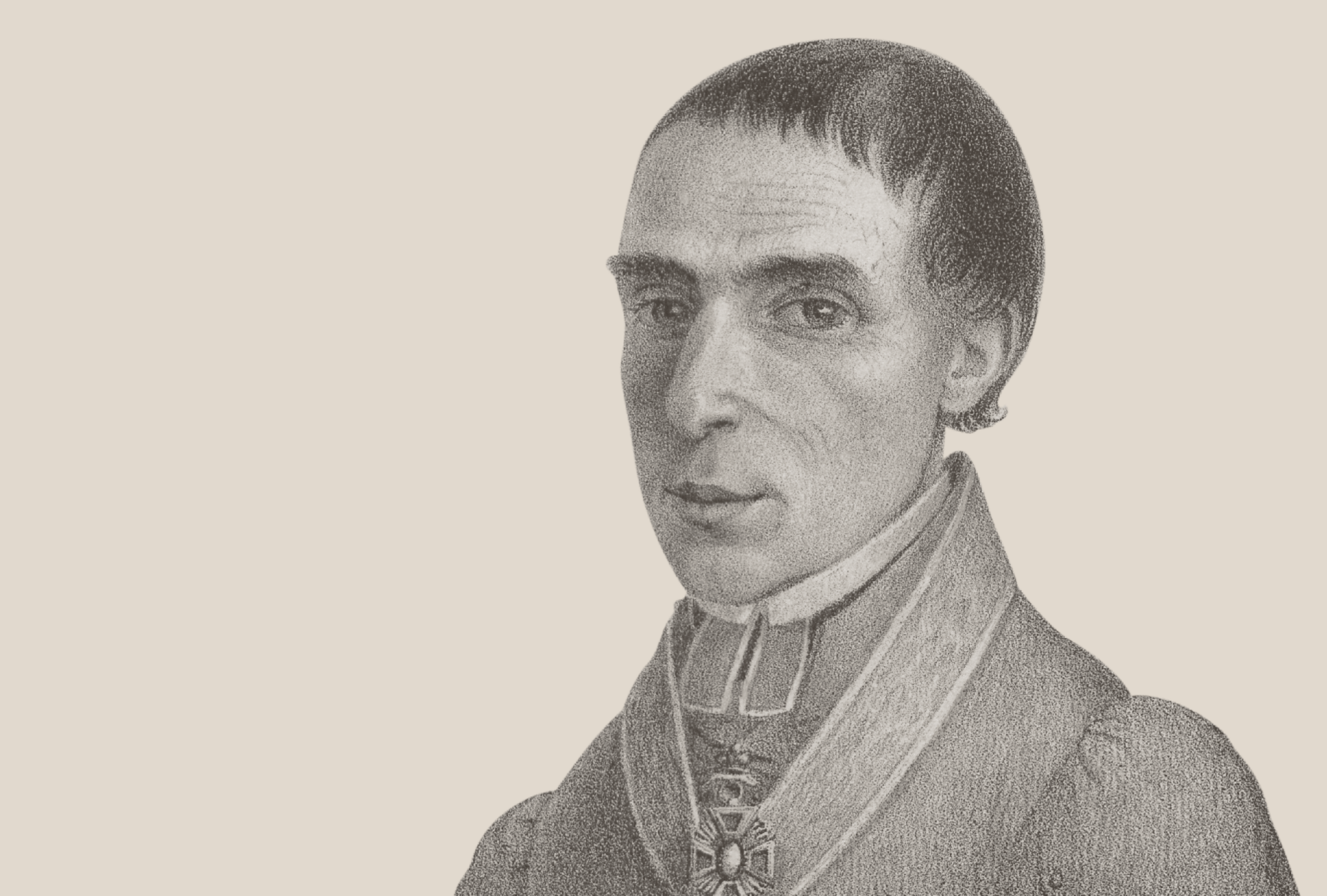

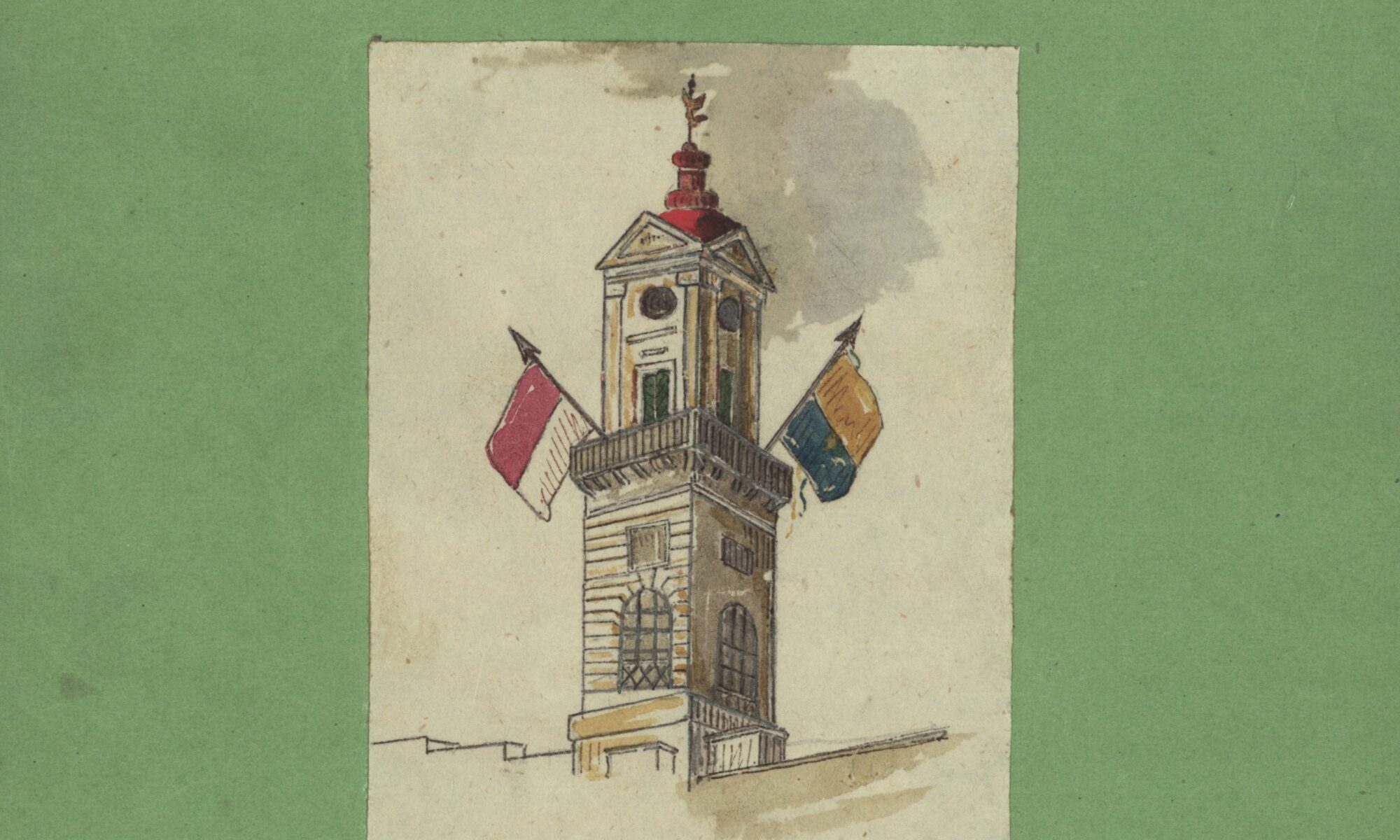
One Reply to “What is a nation? An answer from Austrian Galicia (1883)”
Comments are closed.